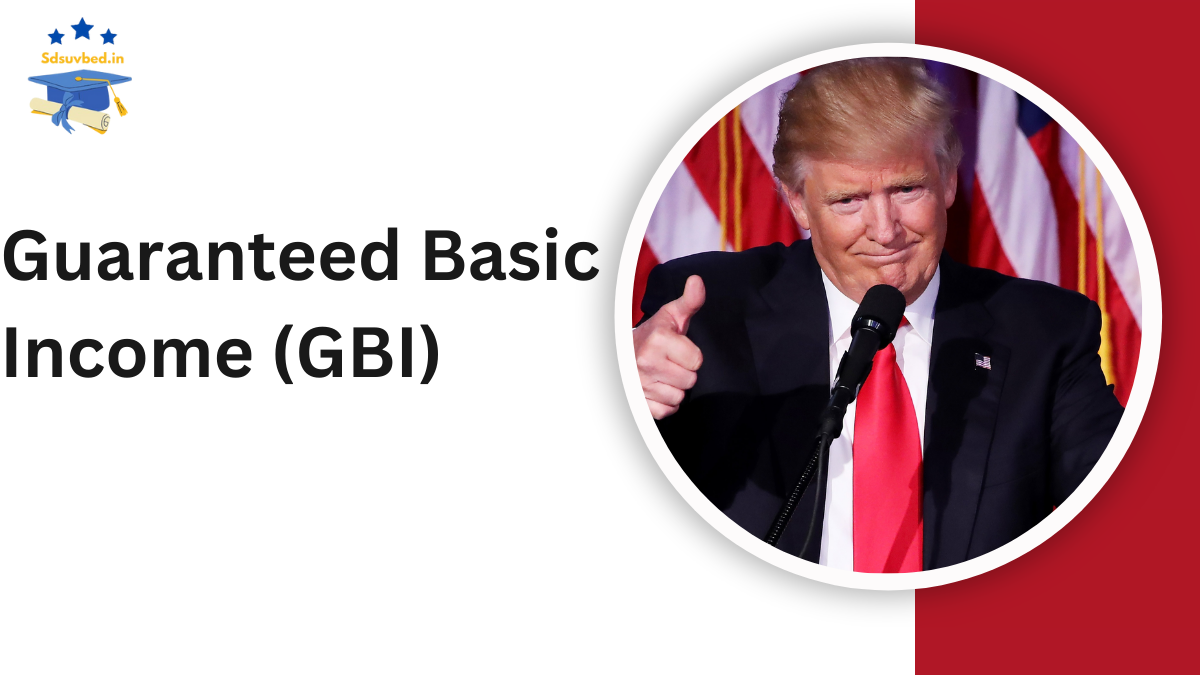The concept of Guaranteed Basic Income (GBI) has gained global attention as a potential solution to poverty and inequality. By providing fixed, unconditional cash payments to individuals regardless of employment status, GBI aims to ensure financial stability. However, recent research and pilot programs highlight significant concerns about its feasibility and long-term impact.
Implementing a universal GBI of $1,000 per month in the United States, for example, would cost an estimated $2.8 trillion annually, surpassing the combined budgets of Social Security and Medicare. Critics argue that such programs may reduce work incentives, increase dependence on welfare, and strain public finances.

Insights from U.S. Pilot Programs
Recent experiments in the United States offer a glimpse into the potential outcomes of GBI programs.
OpenResearch Unconditional Cash Study (ORUS)
This three-year study involving 3,000 participants in Illinois and Texas examined the effects of monthly $1,000 payments. Key findings included:
- Reduced Work Hours: Recipients worked an average of 1.3 hours fewer per week, resulting in a 4-5% drop in weekly employment hours.
- Lower Household Income: Annual household income among recipients fell by an average of $2,500, contradicting claims that GBI promotes financial independence.
- Minimal Skill Development: Despite reduced work hours, participants did not invest significantly in education or professional training.
Wisconsin Pilot Programs
Two cities, Madison and Milwaukee, implemented localized GBI initiatives:
- Madison Pilot Program: Provided $500 monthly payments for one year to 155 households. Early data showed reduced employment and limited engagement in skill-building activities.
- Milwaukee Bridge Project: Targeted low-income expectant mothers with guaranteed payments. Preliminary results mirrored national trends, raising concerns about long-term sustainability.
Financial Implications of Guaranteed Basic Income
One of the most significant barriers to implementing GBI is its immense cost.
| Scope of Program | Estimated Annual Cost |
|---|---|
| Universal ($1,000 for all adults) | $2.8 trillion |
| Targeted (low-income adults only) | $600 billion |
| Social Security Budget (2019) | $1 trillion |
| Medicare Budget (2019) | $800 billion |
These figures demonstrate the challenge of funding GBI without major tax increases or reallocation of resources from other critical welfare programs. Even targeted GBI programs for low-income individuals would cost hundreds of billions annually, potentially diverting funds from essential services like education and healthcare.
Impact on Employment and Household Income
Contrary to its promise of fostering financial independence, GBI may reduce motivation to work and lower household earnings:
- Reduced Work Incentives: Studies show recipients often decrease their working hours, leading to a decline in income.
- Dependence on Welfare: Unconditional payments discourage efforts to seek additional employment or build skills, fostering long-term reliance on government support.
- Income Cliffs: As recipients earn more, they risk losing eligibility for other benefits, creating disincentives to increase earnings.
Social Perceptions and Attitudes Toward Work
GBI programs may inadvertently shift societal attitudes toward work and welfare:
- Eroding Work Ethic: Unconditional payments could reduce societal pressure to work, leading to lower productivity and stagnation.
- Public Opinion: In a 2023 Wisconsin advisory referendum, 80% of voters supported requiring able-bodied adults to seek employment to qualify for welfare. This reflects widespread opposition to unconditional handouts.
Main Issues with Guaranteed Basic Income
Reduced Employment Incentives
GBI programs often result in recipients working fewer hours, as shown by studies like ORUS.
High Costs
Universal GBI would require trillions of dollars annually, straining public finances and necessitating tax hikes or budget cuts elsewhere.
Income Cliffs
Earnings thresholds for benefits create scenarios where increasing income leads to losing benefits, discouraging financial growth.
Long-Term Dependency
Instead of fostering independence, GBI risks creating a cycle of dependence, particularly among low-income households.
Alternatives to Guaranteed Basic Income
To address poverty and inequality without the drawbacks of GBI, policymakers could focus on targeted, conditional programs that encourage work and self-improvement:
- Skill Development Initiatives: Programs that combine financial assistance with education and vocational training can empower individuals to achieve financial independence.
- Work-Linked Benefits: Welfare systems that tie assistance to employment or skill-building encourage productivity while providing support.
- Progressive Tax Credits: Expanding earned income tax credits can provide relief to low-income workers while incentivizing employment.
FAQs
What is Guaranteed Basic Income (GBI)?
GBI is a system that provides unconditional cash payments to individuals, regardless of employment status, aiming to reduce poverty and inequality.
Why is GBI controversial?
Critics argue that GBI reduces work incentives, increases dependency on welfare, and imposes unsustainable costs on government budgets.
How much would a universal GBI cost in the U.S.?
A universal GBI of $1,000 per month would cost approximately $2.8 trillion annually, surpassing the combined budgets of Social Security and Medicare.
Does GBI help improve employment opportunities?
Studies, including the ORUS pilot, found no significant improvement in job quality or skills acquisition among GBI recipients.
What are income cliffs in welfare programs?
Income cliffs occur when earning more disqualifies individuals from benefits, leaving them financially worse off and discouraging higher earnings.
Are there alternatives to GBI?
Yes, alternatives include skill-building programs, work-linked benefits, and expanded tax credits, which promote financial independence while offering targeted support.
How does public opinion view unconditional payments?
Surveys and referendums show strong public support for tying welfare benefits to work or skill-building efforts.
Can GBI replace existing welfare programs?
Replacing current welfare systems with GBI would require significant funding and may lead to gaps in addressing specific needs like healthcare or housing.
Click here to know more.
A passionate content writer specializing in creating engaging, SEO-optimized content. With expertise in blogs, web copy, and storytelling, I craft words that connect with audiences and deliver results.
